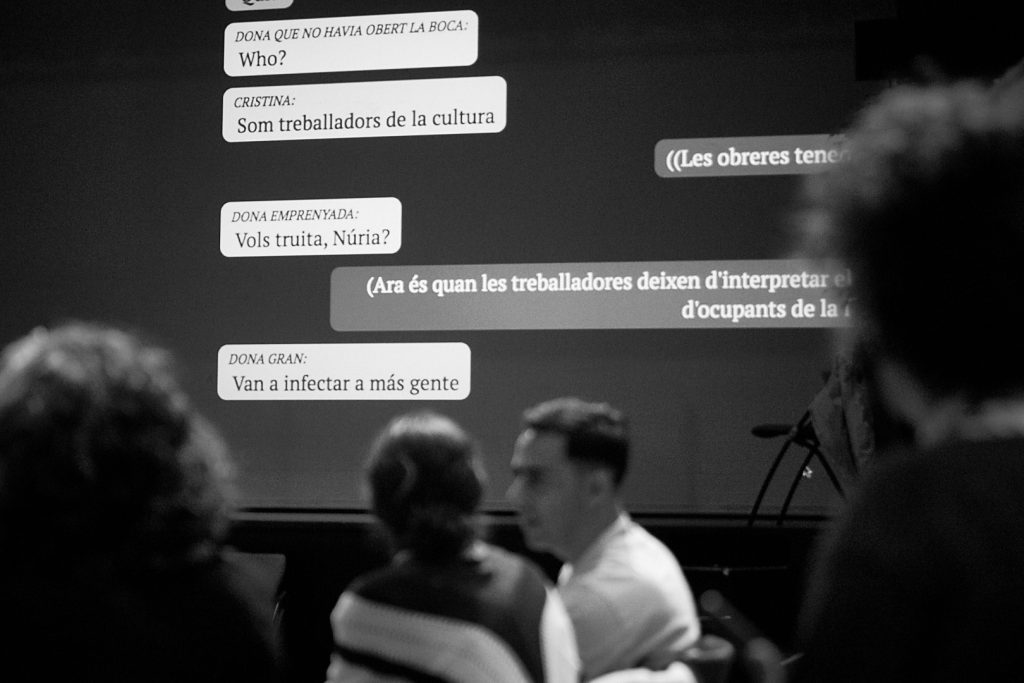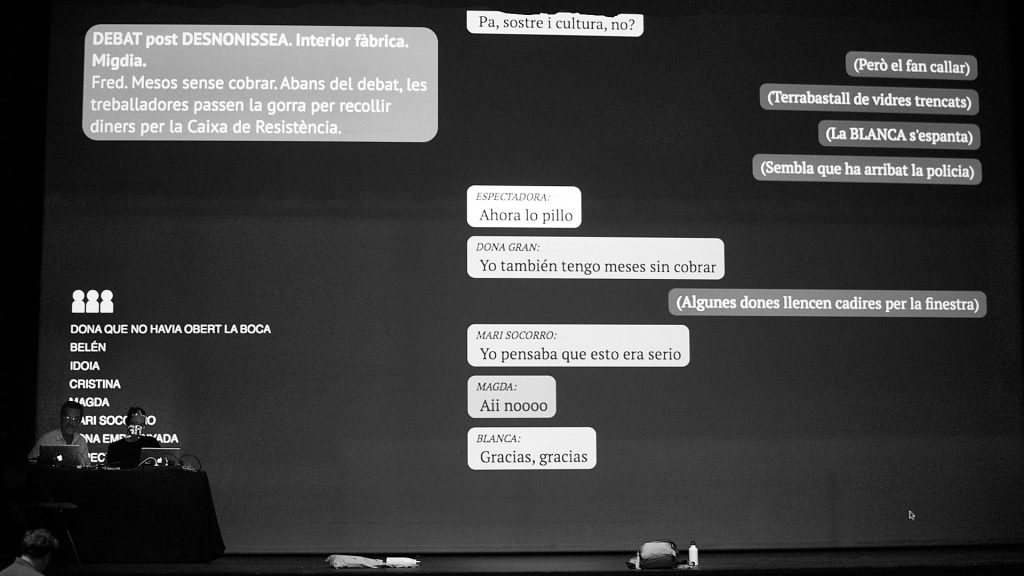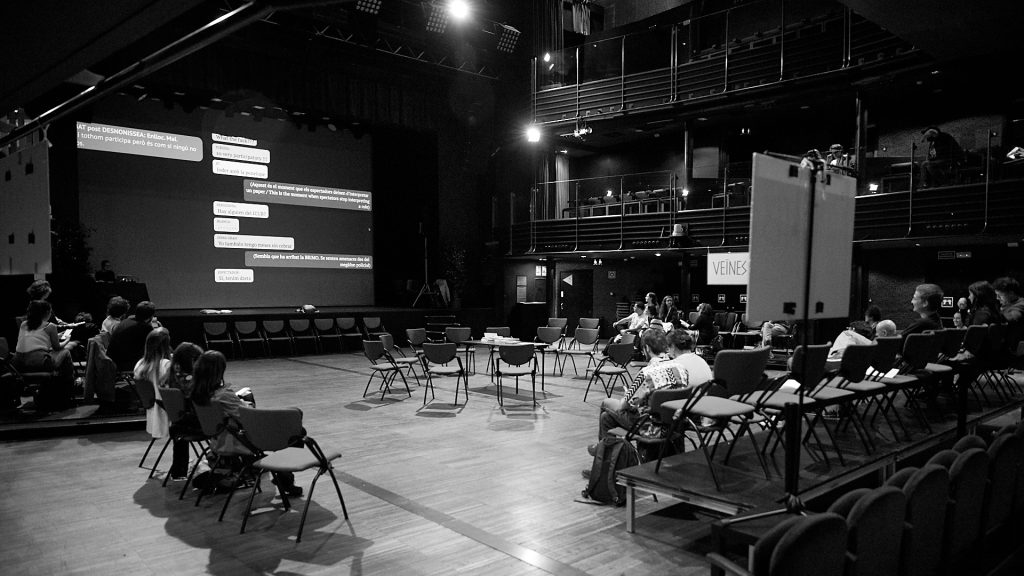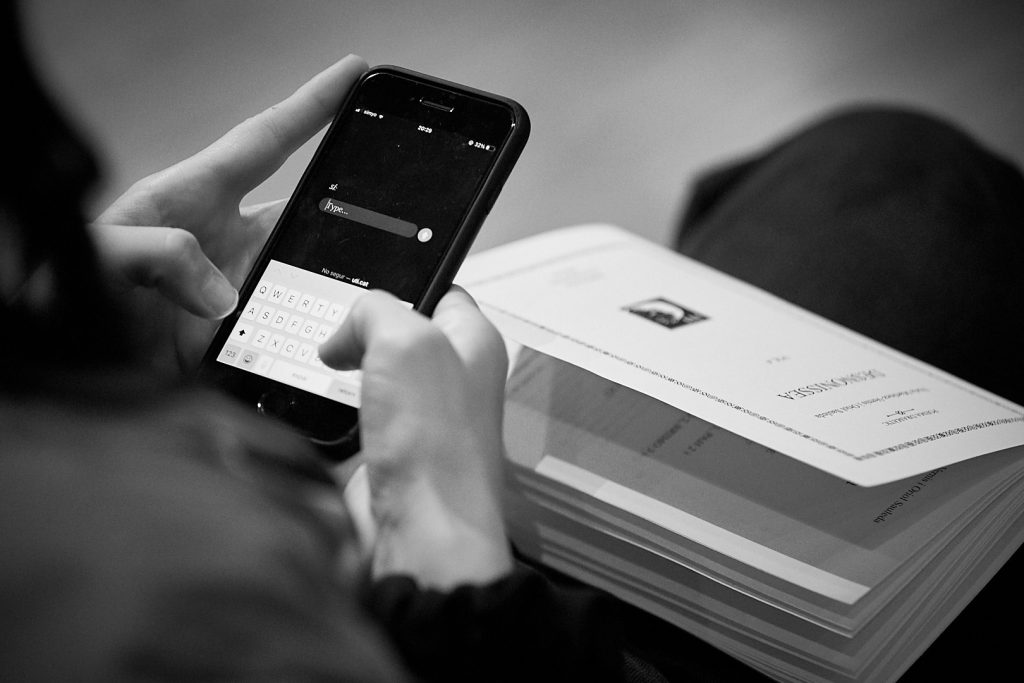
Els espectadors es connecten a un xat amb els seus mòbils i, tot xatejant, construeixen les escenes d’una peça teatral amb final sorpresa. Amb el treball de tots, el sistema construeix un objecte que res no té a veure amb un diàleg.
Sweet dreams are made of this
Who am I to disagree?
I travel the world
And the seven seas,
Everybody’s looking for something.
Some of them want to use you
Some of them want to get used by you
Some of them want to abuse you
Some of them want to be abused.
Sweet dreams (are made of this), Eurythmics
El dret a l’ús i a l’abús (“uti et abuti”) és el que defineix la propietat en dret romà. “Ho he destrossat perquè era meu” o “Era meu perquè ho he destrossat” són fórmules que determinen una manera de relacionar-se amb objectes o persones. És apropiant-se d’allò que és de tots com s’inicia el seu eclipsi, o és l’eclipsi el que fa que una cosa esdevingui d’algú. Per exemple, el discurs de tots del que s’apropien les xarxes socials acaba provocant la desaparició del substracte social que les alimenta. L’espectacle és una demostració escènica d’aquesta paradoxa.

EQUIP
De Roger Bernat. Dramatúrgia: Roberto Fratini. Programació: Mar Canet i Marie-Klara González So: Cristóbal Saavedra Vial. 2017: Producció de Fundació Catalunya La Pedrera. Estrena: 17 de maig del 2018. 2022: Producció de Culturòpolis i Primer Congrés d’Espectadors.

CHAT
The spectators connect to a chat room via their mobiles and, as they chat, each of
the scenes is constructed. At the end, using all the different contributions, the system builds an object that is nothing like a conversation.
Under Roman law, property ownership is defined by the right to «uses and abuses» (uti et abuti). «I destroyed it because it was mine» or «It was mine because I destroyed it» are formulas that determine a way of relating to objects or people. The appropriation of something that belongs to everyone means the start of its obliteration, or, its obliteration makes an object belong to someone. For example, when a common discourse is appropriated by social networks this results in the disappearance of the social substrata that provided it. The show is a dramatised demonstration of this paradox.

A SELECTION OF CHAT ROOMS
- A dating chat room where a single surfer continues to look for a partner as the day breaks;
- A couple at a piano bar;
- Three people in a flat looking at a disassembled Ikea piano;
- A stable in Bethlehem in the year zero when Mary, Joseph and a communist woman meet in front of baby Jesus;
- The King, the Queen, the Princess, the Queen Mother and Goya sharing a meal in the Zarzuela Palace;
- Six people sitting round a glass table deciding on the upcoming advertising campaign for Mercat de les Flors theatre;
- The interior of an upper class home from where the masters of the city observe with uneasy serenity the failure of their lives and the obliteration of their world;
- A demonstration outside Estremera Prison;
- A ward in a field hospital after an attack on the city;
- Molly’s thoughts, as if a never-ending procession of characters took on the voice of Leopold Bloom’s wife…